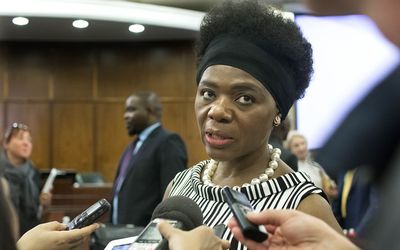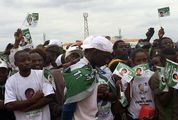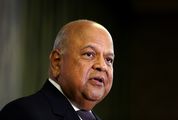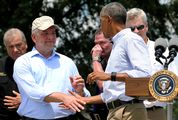Madonsela successor must get even more independence
by Paul Hoffman
2016-07-26 06:05:54.0
THE constitution, very properly, requires that our public protector be appointed for a single nonrenewable period of seven years. For the incumbent, Thuli Madonsela, that term expires in October and a new person must be found to fill her shoes, sit at her desk and continue the good work she does.
The single fixed term of office is a means of ensuring the independence of the office. Any official at any level who has an eye on being reappointed by the executive branch is vulnerable to accusations of executive-mindedness in the work done in the run-up to re-election. Even if there is no conscious bias in favour of the executive, the possibility of subliminally favouring the state in the adjudication of pending disputes towards the end of the term of office would expose a public protector who could be reappointed to the temptations of doing his or her work in a way that pleases those tasked with making the appointment.
Given that the work of the public protector is to investigate any conduct in state affairs or the public administration in any sphere of government that is alleged or suspected to be improper or to result in any impropriety or prejudice, it is plain to see that any conscientious public protector is bound to ruffle the feathers of officials if he or she does the work of "taking appropriate remedial action" against those involved in maladministration conscientiously.
It should be noted that the spheres of government involved do not include the judiciary. The judicial officers of SA are answerable only to the law and the constitution, and there is a Judicial Service Commission to deal with errant judges. The constitution expressly says the public protector "may not investigate court decisions". This is as it should be; the Chapter 9 institutions are all created to support constitutional democracy and they all account to the National Assembly at least once a year. It would be an infringement of the doctrine of the separation of powers were the public protector to be allowed to investigate court decisions for complainants dissatisfied with the outcome of any litigation against the state. Decisions of courts almost invariably leave one or another party dissatisfied. The appeals procedures are there to help tackle this dissatisfaction, and judges who misbehave are subject to the discipline of the Judicial Service Commission.
Somewhat more controversially, the president appoints the heads of Chapter 9 institutions including the public protector, on the recommendation of the National Assembly. The mechanism is that the recommendation must be backed by a resolution of the National Assembly that is supported by at least 60% of its members after involving civil society in the process of coming to that recommendation.
The controversy is based on the over-concentration of power in the hands of the president. It is difficult to imagine the National Assembly, in which 62% of the members are loyal cadres of the governing alliance led by the president, recommending persons who, on their highly independent track records, are likely to become thorns in the flesh of the state and all spheres of government that they are asked to investigate on the basis of allegations of maladministration.
It is often remarked that had the president known then what he knows now, he would not have appointed Madonsela as public protector seven years ago. Her reports have caused considerable embarrassment. The excoriation of several Cabinet ministers, leading to the dismissal of some of them, is also the work of the office of the public protector on the watch of the current incumbent. A national commissioner of police, Bheki Cele, had to be dismissed by the president pursuant to remedial action in the form of a board of inquiry that the public protector required and obtained to follow up on the irregularly negotiated leases for police headquarters in Pretoria and Durban in which Cele was involved. It is quite remarkable that he is now a deputy minister in the president’s cabinet; this reflects poorly on the probity of the latter’s appointments.
Hopefully, the required 60% of members in the National Assembly will be able to recommend a candidate who meets the high expectation of civil society, which is that the successor to Madonsela should be as good in his or her work as she has been throughout her term of office. She has certainly set the bar very high and has, in that process, surpassed the efforts of her predecessors by a considerable margin.
It is incumbent on civil society to play its part in the process by commenting on the applications of the hopefuls who have been prepared to accept nomination.
The CVs of short-listed applicants can be perused and considered electronically at Parliament's website.
At this stage, any objections or comments (that could be supportive) will have to be filtered in via the members of the committee of Parliament that is considering the applicants’ credentials, as the time for public comment and objection expired on July 8.
While most wishful thinkers would prefer a clone of the current incumbent, the official requirements are that all applicants are citizens of SA, are "fit and proper persons" to hold the office of public protector, and also comply with the qualifications criteria of the prescribed national legislation.
To be "fit and proper" the applicant ought to enjoy robust good health and be prepared, equipped and willing to act with impartiality and without fear, favour or prejudice. In a word, the chief characteristic of a good public protector is independence. It is only by acting independently that the next incumbent will be able to match the high standards of the last.
Any applicant who is a politician, an active member of a political party or too close to politicians in office should be regarded with extreme caution. In essence, and given the compromised and conflicted status of our president, the person recommended to be our next public protector ought to be the candidate the president would least like to appoint; the candidate with the most impeccable credentials of impartiality and independence.
It is only in this way that the high standards set by Madonsela can be maintained by her successor. On her watch, the levels of state accountability and government responsibility have been enhanced by the work of her office. The process of weeding out those who are not truly independent, not sufficiently experienced and lacking in expertise has begun. Some worthy nominees have declined appointment. Others, who have kept their hats in the ring, will be wondering whether they are "fit and proper" in the eyes of the National Assembly.
It would be useful psychometrically to assess the candidates and to subject those who have made the short list to a medical examination. In this way, objective criteria are used and the possibility of a less than independent and impartial successor being appointed is limited with the aid of science. This procedure would temper the sole reliance on the opinions of politicians as the only guide to finding the right candidate.
• Hoffman, SC, is a director of Accountability Now.

Thuli Madonsela. Picture: TREVOR SAMSON
THE constitution, very properly, requires that our public protector be appointed for a single nonrenewable period of seven years. For the incumbent, Thuli Madonsela, that term expires in October and a new person must be found to fill her shoes, sit at her desk and continue the good work she does.
The single fixed term of office is a means of ensuring the independence of the office. Any official at any level who has an eye on being reappointed by the executive branch is vulnerable to accusations of executive-mindedness in the work done in the run-up to re-election. Even if there is no conscious bias in favour of the executive, the possibility of subliminally favouring the state in the adjudication of pending disputes towards the end of the term of office would expose a public protector who could be reappointed to the temptations of doing his or her work in a way that pleases those tasked with making the appointment.
Given that the work of the public protector is to investigate any conduct in state affairs or the public administration in any sphere of government that is alleged or suspected to be improper or to result in any impropriety or prejudice, it is plain to see that any conscientious public protector is bound to ruffle the feathers of officials if he or she does the work of "taking appropriate remedial action" against those involved in maladministration conscientiously.
It should be noted that the spheres of government involved do not include the judiciary. The judicial officers of SA are answerable only to the law and the constitution, and there is a Judicial Service Commission to deal with errant judges. The constitution expressly says the public protector "may not investigate court decisions". This is as it should be; the Chapter 9 institutions are all created to support constitutional democracy and they all account to the National Assembly at least once a year. It would be an infringement of the doctrine of the separation of powers were the public protector to be allowed to investigate court decisions for complainants dissatisfied with the outcome of any litigation against the state. Decisions of courts almost invariably leave one or another party dissatisfied. The appeals procedures are there to help tackle this dissatisfaction, and judges who misbehave are subject to the discipline of the Judicial Service Commission.
Somewhat more controversially, the president appoints the heads of Chapter 9 institutions including the public protector, on the recommendation of the National Assembly. The mechanism is that the recommendation must be backed by a resolution of the National Assembly that is supported by at least 60% of its members after involving civil society in the process of coming to that recommendation.
The controversy is based on the over-concentration of power in the hands of the president. It is difficult to imagine the National Assembly, in which 62% of the members are loyal cadres of the governing alliance led by the president, recommending persons who, on their highly independent track records, are likely to become thorns in the flesh of the state and all spheres of government that they are asked to investigate on the basis of allegations of maladministration.
It is often remarked that had the president known then what he knows now, he would not have appointed Madonsela as public protector seven years ago. Her reports have caused considerable embarrassment. The excoriation of several Cabinet ministers, leading to the dismissal of some of them, is also the work of the office of the public protector on the watch of the current incumbent. A national commissioner of police, Bheki Cele, had to be dismissed by the president pursuant to remedial action in the form of a board of inquiry that the public protector required and obtained to follow up on the irregularly negotiated leases for police headquarters in Pretoria and Durban in which Cele was involved. It is quite remarkable that he is now a deputy minister in the president’s cabinet; this reflects poorly on the probity of the latter’s appointments.
Hopefully, the required 60% of members in the National Assembly will be able to recommend a candidate who meets the high expectation of civil society, which is that the successor to Madonsela should be as good in his or her work as she has been throughout her term of office. She has certainly set the bar very high and has, in that process, surpassed the efforts of her predecessors by a considerable margin.
It is incumbent on civil society to play its part in the process by commenting on the applications of the hopefuls who have been prepared to accept nomination.
The CVs of short-listed applicants can be perused and considered electronically at Parliament's website.
At this stage, any objections or comments (that could be supportive) will have to be filtered in via the members of the committee of Parliament that is considering the applicants’ credentials, as the time for public comment and objection expired on July 8.
While most wishful thinkers would prefer a clone of the current incumbent, the official requirements are that all applicants are citizens of SA, are "fit and proper persons" to hold the office of public protector, and also comply with the qualifications criteria of the prescribed national legislation.
To be "fit and proper" the applicant ought to enjoy robust good health and be prepared, equipped and willing to act with impartiality and without fear, favour or prejudice. In a word, the chief characteristic of a good public protector is independence. It is only by acting independently that the next incumbent will be able to match the high standards of the last.
Any applicant who is a politician, an active member of a political party or too close to politicians in office should be regarded with extreme caution. In essence, and given the compromised and conflicted status of our president, the person recommended to be our next public protector ought to be the candidate the president would least like to appoint; the candidate with the most impeccable credentials of impartiality and independence.
It is only in this way that the high standards set by Madonsela can be maintained by her successor. On her watch, the levels of state accountability and government responsibility have been enhanced by the work of her office. The process of weeding out those who are not truly independent, not sufficiently experienced and lacking in expertise has begun. Some worthy nominees have declined appointment. Others, who have kept their hats in the ring, will be wondering whether they are "fit and proper" in the eyes of the National Assembly.
It would be useful psychometrically to assess the candidates and to subject those who have made the short list to a medical examination. In this way, objective criteria are used and the possibility of a less than independent and impartial successor being appointed is limited with the aid of science. This procedure would temper the sole reliance on the opinions of politicians as the only guide to finding the right candidate.
• Hoffman, SC, is a director of Accountability Now.



















